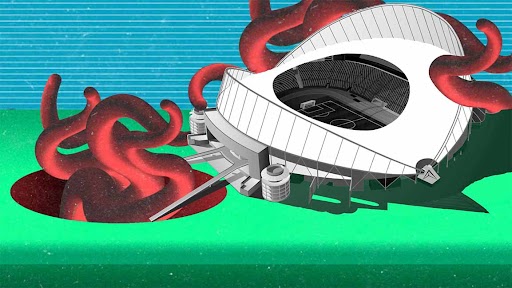- | 2:00 pm
Emir of Qatar slams ‘unprecedented’ criticism over hosting FIFA World Cup
The Gulf state is anticipating 1.2 million visitors during the football tourney kicking off on November 20

After Qatar met constant criticism over its treatment of foreign workers and restrictive social laws among other issues, Emir Sheikh Tamim bin Hamad al-Thani denounced international scrutiny since the Gulf state became the host of the 2022 World Cup.
“We dealt with the situation from the beginning in good faith. We even considered some of the criticism as positive and constructive. But it appears to us that the campaign is continuing and expanding and contains slander and double standards,” he said in a televised address on Tuesday.
In a 2016 report, Amnesty International and Human Rights Watch highlighted the maltreatment of workers building stadiums.
The alleged abuses affecting legions of low-paid laborers who power Qatar’s economy and who built its gleaming World Cup stadiums have been protested around the world, especially in Europe.
In the run-up to the much-awaited tournament, environmental organizations, too, criticized the plan to organize the event in air-conditioned stadiums.
Qatar has repeatedly insisted the country has improved protections for migrant workers. Rights groups have credited Qatar with improving its labor laws, such as by adopting a minimum monthly wage of around $275 a month in 2020, and for dismantling the “kafala” system that had prevented workers from changing jobs or leaving the country without the consent of their employers.
Qatar is anticipating 1.2 million visitors during the football tourney kicking off on November 20, posing an extraordinary logistical and law enforcement burden for the Gulf Arab nation.
The Emir said the event is a chance for Qatar to show “who we are, not only in terms of the strength of our economy and institutions but also our civilizational identity.”































